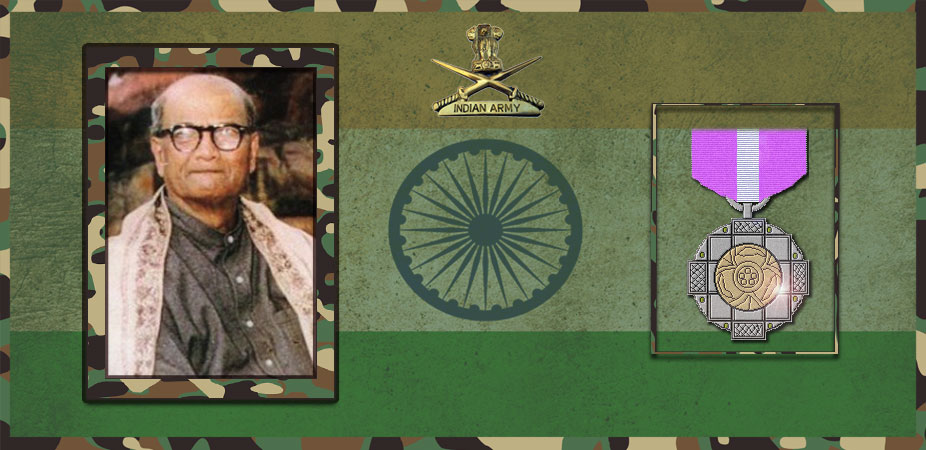Let's salute to our Indian Army together, We are proud to be Indian.
Let's salute to our Indian Army together, We are proud to be Indian.

Devanahalli Venkataramanaiah Gundappa, popularly known as DVG, was a Kannada writer and philosopher. His most notable work is the Mankuthimmana Kagga (“Dull Thimma’s Rigmarole”, 1943), which is similar to the wisdom poems of the late medieval poet Sarvajna.
He also wrote Srimad BhagavadGeeta Tatparya, also known as Jeevana Dharma Yoga, which has received the Sahitya Akademi Award in 1967.Jeevanadharmayoga (yoga of everyday life) is an extraordinary piece of literature, which provides great solace and at the same time makes a commoner realize values of life, D.V.G has turned the great Hindu philosophical work into a common man’s handbook of useful life.
Vasantha Kusumanjali was the first collection of poems of DVG. Poems on popular personalities such as nationalists, social reformers, administrators, philanthropists and their activities have been included in this collection. The pen pictures of Tilak, Gokhale, Rabindranath Tagore, Visveswaraiah, Raja Ram Mohan Roy and Gandhi highlight the characteristic qualities of the personalities depicted. On the occasion of his birth centenary, all his works compiled in eleven volumes titled “D.V.G. Kriti Shreni”, are jointly published by Department of Kannada and Culture and Karnataka Sahitya Academy. Very ably edited by late Dr. Ha.Ma. Nayak the volumes were published between 1990–2000 CE. A second edition was brought out in 2005 CE.
DVG served as the president of the 18th Kannada Sahitya Sammelana (Literary Conference) held in Madikeri in 1932.
DVG was a pioneer in writing biography in Kannada. He knew well that human traits were basic material for both creative writing and writing of biography. The book Dadabhai Navaroji that he wrote in 1950 is in a way his experiment with biographical writing. The first biography of Rangacharlu by DVG virtually reveals the author’s abounding interest in politics, his deep public sympathy and his faith firmly rooted in democracy. These very values of the author were reiterated in his second biography of Gopalakrishna Gokhale.
Other than the biography of Diwan Rangacharlu, the biography of Gopalakrishna Gokhale by DVG is a much appreciated one. Gopalakrishna Gokhale had immense influence on DVG. He was in total agreement with Gokhale’s principle, namely, “Public life must be spiritualized”. This very fact led him to found the Gokhale Institute of Public Affairs later. In the preface to the biography, DVG wrote “I have written this book to enuciate some principles, ends and means in which I have full faith, implementation of which would do good to the people and society.”Gokhale lived a frugal life. This quality along with the undivided commitment to finish the works being undertaken, heavily influenced DVG throughout his life.The biography of Gokhale saw many reprints and it was also prescribed as a textbook. Selected lectures of Gokhale were later added to it.
DVG founded the Gokhale Institute of Public Affairs GIPA) located in Bull Temple Road, Basavanagudi and promoted fine arts of India.Sri Nittoor Srinivasa Rao, The then Chief Justice of Karnataka, Masti Venkatesa Iyengar, V.T.Srinivasan, the Principal of Vijaya College, Bengaluru were some of his close associates. DVG died on 7 October 1975.The road where his residence existed in Nagasandra road has been renamed as DVG Road in Basavanagudi.
Gundappa was awarded Padmabhushan by the Government of India in 1974. The State of Karnataka under Chief Minister Sri Veerandra Patil honored him for his services to Kannada literature in 1970 at Ravindra Kalkshetra, Bengaluru and awarded a purse of Rs 90,000. DVG donated the entire award money to the Gokhale Institute of Public Affairs. India Post issued a commemorative stamp of Dr. Gundappa in 1988
In 2003, a statue was erected to honor DVG in Bugle Rock Park, Basavanagudi.